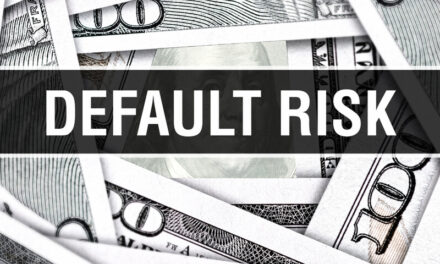Dallas Federal Reserve President Robert Kaplan said this morning the country’s fourth-quarter 2019 gross domestic product will be “weak” and we shouldn’t expect better than 2%. Also, the level of corporate debt right now can bring down the economy.
The economy is estimated to have grown at modest 1.9% in the third quarter of this year, according to the Bureau of Economic Analysis. The official results will be released Wednesday morning, and we will be sure to have the report here on Money and Markets.
“We think the fourth quarter is going to be weak,” Kaplan told CNBC’s Steve Liesman this morning on “Squawk Box.” “One of the reasons the fourth quarter is going to be weak … is probably a significant inventory adjustment, which might be as much as a half a percent or more of GDP growth.”
The inventory adjustment stems from companies “de-stocking” due to “a lot of pessimism over future growth,” but he said “we think things will stabilize; we’ve got a good chance to grow at 2% next year.”
Liesman then asked if 2% growth was “the runway we can’t get out of” because of course everyone would like to see the GDP higher, and President Donald Trump has said a number of times we’d have “4, 5 and maybe even 6% GDP” under his leadership.
“We’ve got some structural issues that are not going away: aging demographics, aging workforce, which means slowing workforce growth. And our productivity’s been sluggish … because of lack of investment in skills training and education,” Kaplan said. “And also sluggish (capital expenditures) that we’re seeing, probably due primarily to deglobalization, is also reducing productivity.
“GDP growth is made up of growth in the workforce and growth in productivity, so we think at the Dallas Fed that potential GDP growth in the United States is 1 3/4 to 2%. But it gets worse if we don’t make some policy changes, we think over the next five or 10 years it’s going to slowly decline.”
Liesman then pointed out that the “deglobalization” Kaplan mentioned is a “euphemism for the trade war” with China, to which Kaplan said yes, exactly that.
“Weak manufacturing, weak global growth, weak business investment all relate to uncertainty regarding trade,” Kaplan said. “If that got stabilized, I think we’d have a chance to see those measures improved.”
Kaplan said even with trade stability, the U.S. GDP would remain around 2% until we see “policies away from monetary policy” such as “infrastructure spending, immigration reform and policies that improve education and skills training.”
Kaplan then said Fed monetary policy is currently “in the right place” after three interest rate cuts since July, which he says were needed because of what was happening with the yield curve.
“A lot of people say, ‘Ah, the yield curve doesn’t mean what it used to,’ and I don’t actually agree with that,” he said. “I think when you have the Fed funds rate above every rate along the curve, it was a signal to me it has to be adjusted. We now have a more normally shaped yield curve and that to me is reinforcing the fact that I think 1 1/2 to 1 3/4 on the Fed funds rate is now about right.”
Of course, as Liesman points out, running historically low interest rates creates other problems, such as what to do when a recession actually hits, to which Kaplan agreed but said should see it as times having changed.
“We have to accept that if potential (GDP) growth is 1 3/4 to 2, the Fed funds rate is going to be historically lower than we’re accustomed,” he said. “Look at the 10-year Treasury; over the last year it went from 3.25 to 1 3/4. I think the markets are telling us that if prospects for growth are this sluggish, you’re just going to have lower rates than we’ve had historically.”
That’s when the subject turned to the increasing debt levels held in corporate America, and how that can blow up in everyone’s face at some point.
“We’ve got a record level of corporate debt and, to be specific, BBB debt has tripled the last 10 years,” he said. “Leveraged loans as well as BB and B debt have grown dramatically. It’s not like ’08-’09 because the problem with ’08-’09 is the lenders were over-leveraged. Right now we have an issue where the borrowers are highly leveraged and my concern is if you have a downturn where we grow more slowly, it means that this amount of debt can be an amplifier — a higher percentage of cash flows are being spent on servicing debt.”
“The thing I am worried about is if you get two or three BBB credit downgrades to BB or B, that could lead to a rapid widening in credit spreads, which could then lead to a rapid tightening in financial conditions.”
Or in layman’s terms, a recession.



